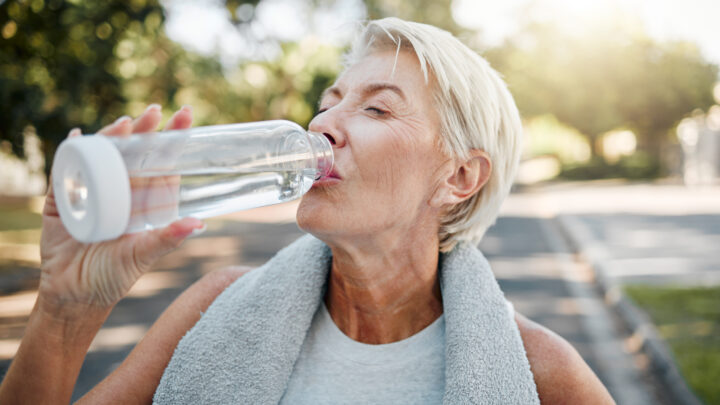The dangers of dehydration
Dehydration is more than just feeling a little parched. For older adults, the consequences of inadequate hydration can be severe. Let’s take a closer look at some of the potential risks:
Heat-related illnesses: Older adults are particularly susceptible to heat exhaustion and heatstroke, both of which can be life-threatening if not promptly addressed. Dehydration can exacerbate the symptoms and complications associated with these conditions.
Kidney problems: Dehydration can lead to kidney stones and urinary tract infections, which are painful and can require medical intervention.
Cognitive impairment: Chronic dehydration may contribute to cognitive decline in seniors, leading to problems with memory, attention, and decision-making.
Increased falls risk: Dehydration can lead to dizziness and weakness, increasing the likelihood of falls and fractures.
Medication ineffectiveness: Some medications may become less effective when not taken with enough water. Older adults who are dehydrated may not get the full benefits of their prescribed treatments.
Simple tips for staying hydrated
We all know water is vital, yet far too many of us still aren’t drinking enough.
A recent survey found nearly half of Australians admit they don’t get the recommended daily amount, and 40 per cent regularly feel the tell-tale signs of dehydration. Even more worrying, one in three people say they simply don’t do much about it.
Despite knowing hydration should be a top health priority, a huge 82 per cent of Aussies are falling short of the 8–10 glasses a day experts recommend. For older adults in particular, that shortfall can have serious consequences.
That’s why Starts at 60 sat down with dietitian and nutritionist Kiah Paetz from Imbodi Health to share simple, practical steps to keep your hydration on track and your health protected.
Consistent intake: Drink small amounts of fluids consistently throughout the day, rather than large amounts at once. This can help maintain steady hydration levels.
Flavourful hydration: Sometimes, plain water may not be appealing. Offering naturally flavoured waters using slices of fruits like cucumber, oranges, or berries as well as diet cordials can make the hydration process more enjoyable.
Set reminders: For those who might forget to drink regularly, setting hourly reminders or alarms can be beneficial.
Monitor fluid loss: If you are engaging in any physical activity, it’s essential to replace any fluids you lose. Keeping an eye on how much you sweat can help gauge your hydration needs.
Limit caffeinated and alcoholic drinks: While you might enjoy your morning coffee or occasional glass of wine, it’s essential to balance with plenty of water, as these can act as diuretics.
Check urine colour: A general indicator of hydration is urine colour. Pale yellow is typically a sign of good hydration, while dark yellow or amber might indicate the need for more fluids.
Awareness of medications: Some medications might affect hydration levels or how the body retains water. It’s essential to be aware of these and adjust fluid intake accordingly.
As the mercury continues to rise and the summer season approaches, it’s important to focus on our hydration needs. By embracing the straightforward yet effective strategies outlined in this article, we can ensure that we not only savour the sunny days but also remain safe and consistently well-hydrated.
IMPORTANT LEGAL INFO This article is of a general nature and FYI only, because it doesn’t take into account your personal health requirements or existing medical conditions. That means it’s not personalised health advice and shouldn’t be relied upon as if it is. Before making a health-related decision, you should work out if the info is appropriate for your situation and get professional medical advice.

